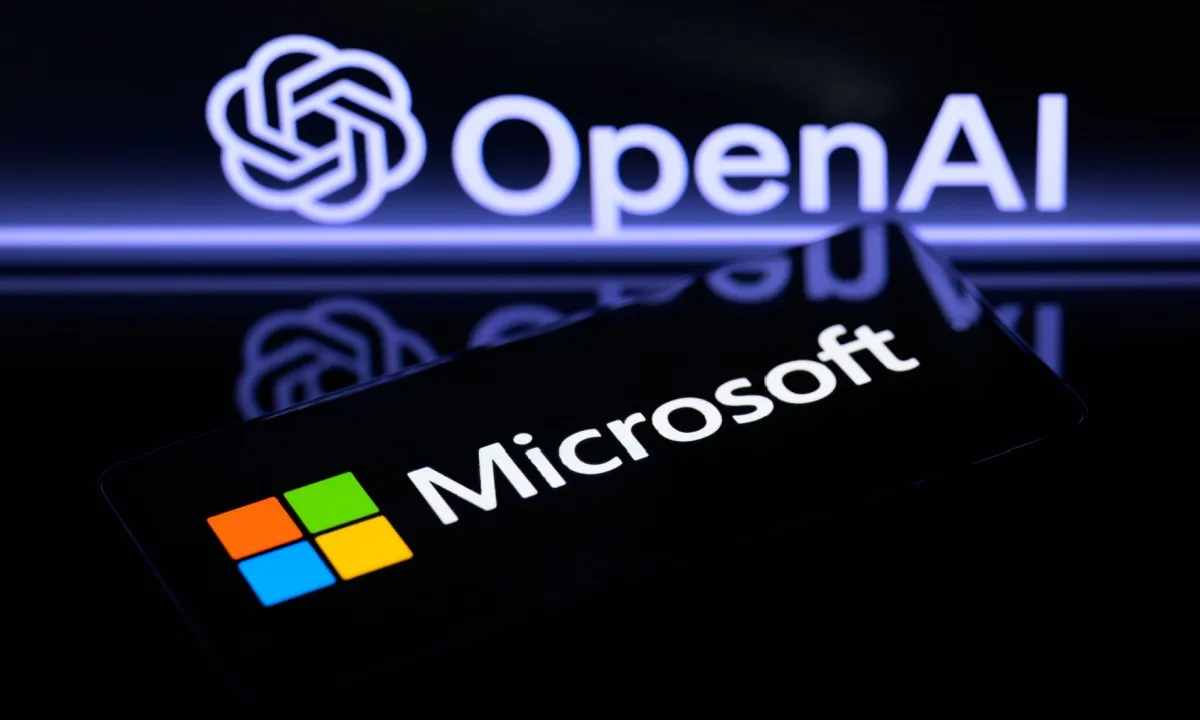
- Stocks
Microsoft won’t join OpenAI’s directors board
Do you want to know how to make money from this?
Register for free and get expert advice, access to a training course and webinars.
Key points:
- Microsoft has decided to reduce concerns of US and UK antitrust authorities about the company’s influence on OpenAI.
- The US FTC questions whether this step is sufficient to address concerns.
- EU: The partnership is not subject to merger rules, but views will be sought on exclusivity provisions.
In order to reduce concerns of US and UK antitrust authorities about its influence on the AI startup, Microsoft has decided to give up its observer seat on the OpenAI board of directors. This step was taken against the backdrop of the rapid development of generative AI technologies and the growing popularity of OpenAI in this area.
The change in the composition of OpenAI’s board of directors is intended to demonstrate Microsoft’s commitment to the principles of fair competition and minimize the risks associated with the company’s potential dominance in the AI market.
The US FTC’s reaction and OpenAI’s future plans
Despite the steps taken by Microsoft, the US Federal Trade Commission (FTC) expressed doubts that this decision will completely eliminate the agency’s concerns. The FTC, we recall, is currently conducting an antitrust investigation into transactions concluded between large technology companies and leaders in the field of artificial intelligence.
This move by Microsoft indicates that the company is aware of the potential threat from antitrust laws and is trying to preempt its application.
In turn, OpenAI announced the development of a new strategy for interaction with stakeholders. The company plans to hold regular meetings with strategic partners such as Microsoft and Apple, as well as investors including Thrive Capital and Khosla Ventures.
Apple will also not become an observer in OpenAI
As it became known, Apple, which previously planned to integrate the OpenAI ChatGPT chatbot into its devices, will also not become a member of the OpenAI board of directors.
Apple’s decision to give up its observer seat on OpenAI’s board of directors came as a surprise to many, as the company has been actively cooperating with the startup. At the same time, OpenAI announced it would end its practice of providing observer seats on its board of directors.
Recall that Microsoft received a non-voting observer seat on the OpenAI board of directors in November 2023 after Sam Altman returned to the post of CEO of the company.
Microsoft attributed its resignation from OpenAI’s board to “new partnerships, innovation, and the growth of OpenAI’s customer base following Altman’s return.
Reaction of antimonopoly authorities and experts
European competition authorities said last month that the Microsoft-OpenAI partnership didn’t fall under EU merger rules because Microsoft doesn’t have control over OpenAI. However, they plan to seek outside expert opinion regarding the exclusivity provisions in the agreement.
At the same time, UK and US competition authorities continue to express concern about Microsoft’s potential influence on OpenAI and its independence.
Bill Baer, a former U.S. antitrust official and visiting fellow at the Brookings Institution, said Wednesday that the likely risks of antitrust investigations appear to outweigh the benefits of serving on OpenAI’s board of directors.
An antitrust lawyer, who wished to remain anonymous due to the nature of the industry, noted that Microsoft is making a smart move by eliminating “the only tangible evidence” of possible control/influence over OpenAI, which will make it much more difficult for antitrust regulators to prove otherwise.
Do you want to know
How to make money from the news
Register for free and get:
- Expert consultation;
- Access to the training course;
- Opportunity to participate in webinars

